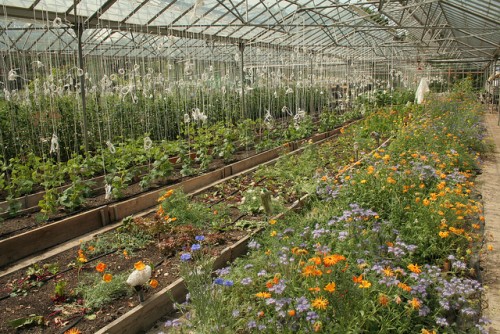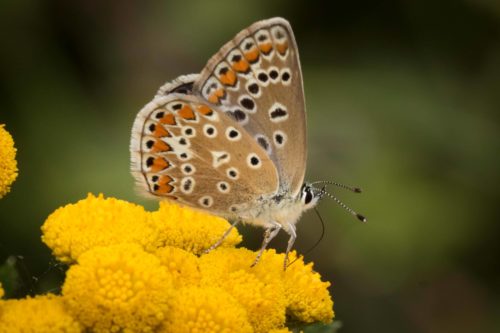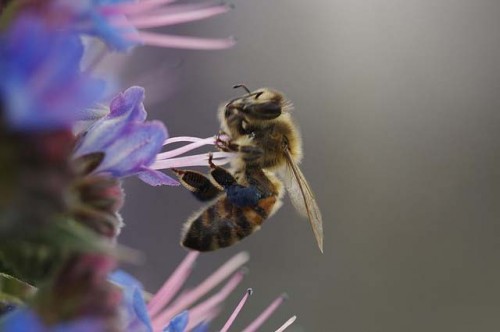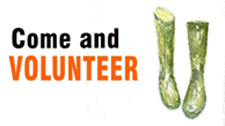
‘Unless we change our ways of producing food, insects as a whole will go down the path of extinction in a few decades. The repercussions this will have for the planet’s ecosystems are catastrophic.’ (Journal of Biological Conservation, 2019)
Pollinator insects – bees, wasps, butterflies, and more – are under threat. From climate change, pesticides, disease and because of the intensification in the way we use land. But the biggest single threat is agricultural intensification.
We are committed to growing food, and managing the land we garden, in a way that is beneficial to pollinator insects, and we want to help others to do the same.
Pollinators at Hawkwood
We manage our 12-acre Hawkwood site as a place for people, plants and wildlife. We grow food in our market garden. We also grow and look after flowers, trees and the land and food for insects and animals. We aim to support the wild pollinators living on site, and care for the honeybees living in our hives.
As food growers, encouraging a wide range of insects to make our site their home is key to making sure that many of our crops are successfully pollinated.
Pollinators include bees, (honey bees, solitary species and bumblebees); wasps; ants; flies including bee flies, hoverflies and mosquitoes; butterflies, moths and some beetles.

We have wildflower meadows, ponds, companion flowers and trees to provide homes and forage for pollinators, do not use pesticides or insecticides, and have created bumblebee and solitary bee homes.
Visit Hawkwood to find out more about what we are doing. You can follow our new Bee Wild Pollinator Trail.
Honeybees at Hawkwood
Hives for honeybees have been part of our Hawkwood site since 2009. Set up by leading sustainable beekeeper Sean Hearn, we provide homes for families of bees in a dedicated apiary in the northern corner of our 12-acre site. Honey bees can travel up to 3km to forage for nectar and pollen on warm, sunny days.

We use a Warre hive design that replicates the natural habitats of wild honeybees as much as possible. It has top bars for bees to build comb from (rather than the frames used in conventional beekeeping) and is designed to minimise disturbance to the hive. The aim is to reduce the need for intervention and unnecessary stress for the bee colony, while making it possible for us to monitor the bees and ensure the health of the hive.
When building our hives, we use sustainably sourced materials where possible, and avoid many of the practices seen in conventional beekeeping that are used to maximise honey production, like swarm suppression and sugar feeding. We harvest small amounts of wax and propolis to make products for sale on our farm stalls, and only harvest honey that is surplus to the bees’ needs each season – most years we do not harvest any honey at all.
Bee Wild
In summer 2018 we were grateful to receive a 2-year grant from the Heritage Lottery for our Bee Wild programme.
This has enabled us to increase our ambition to support wild pollinators and honeybees at Hawkwood and beyond. As part of Bee Wild we are:
- Training people in pollinator-friendly gardening, and sustainable beekeeping
- Offering Bee Wild volunteer learning placements at Hawkwood
- Digging ponds and planting wildflower meadows
- Running stalls and workshops across Waltham Forest to support people to take action for wild pollinators
- Producing resources and increasing communication on action for wild pollinators
If you want to learn more or get involved, check out the zine we made, watch this short film, sign up to our mailing list, or come and volunteer at Hawkwood.





